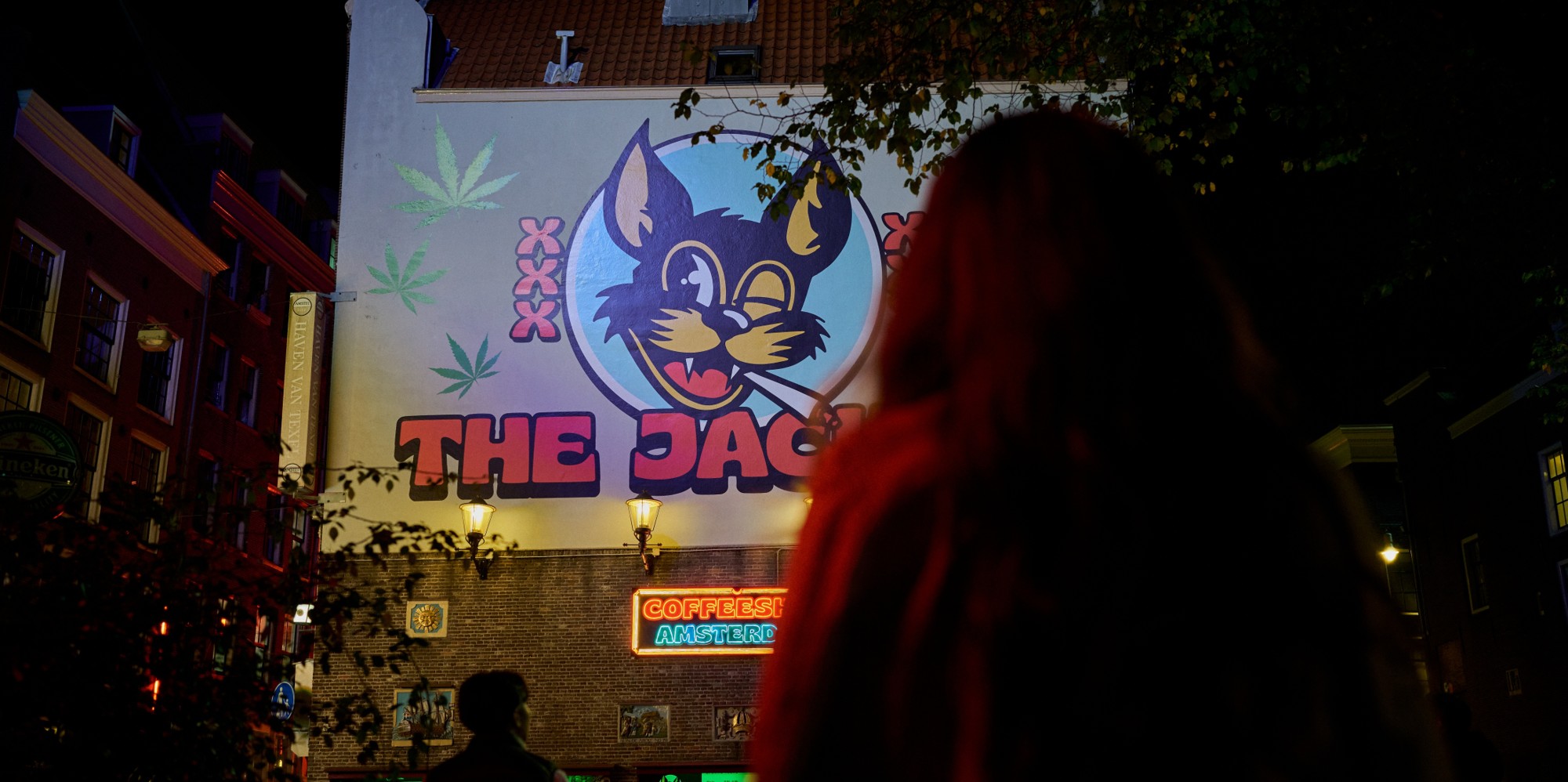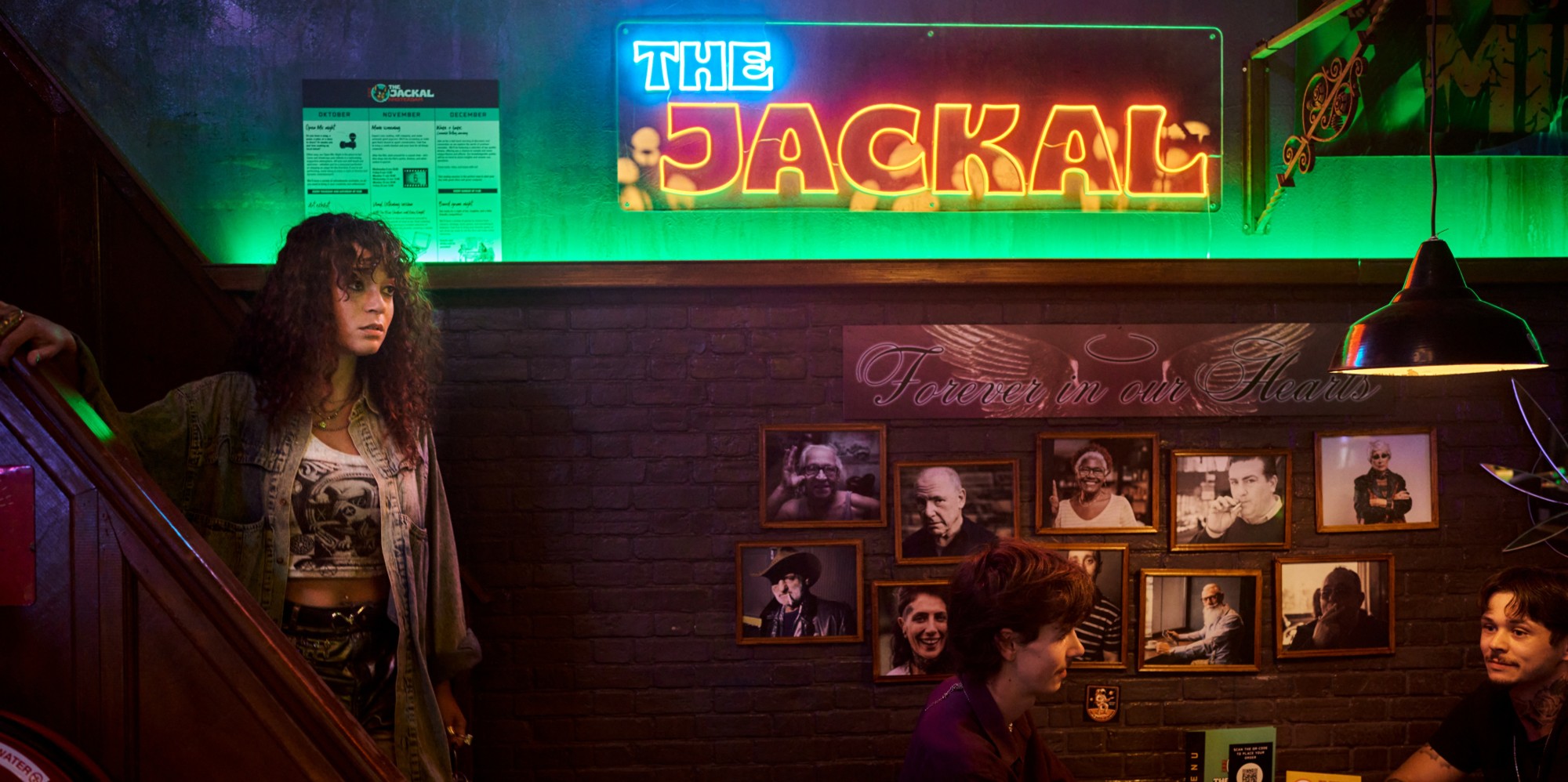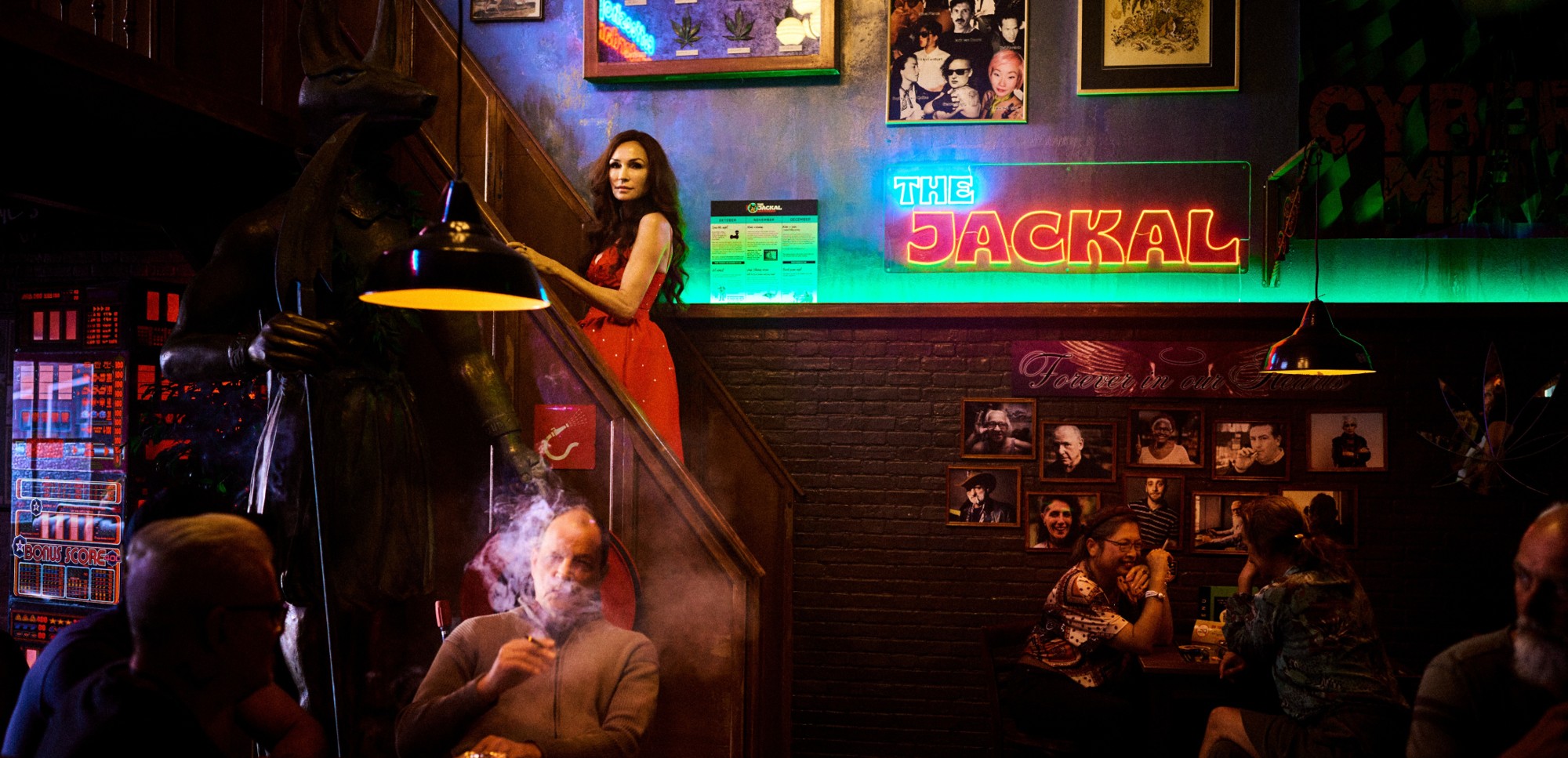Created by Piet Matthys, Nico Moolenaar, and Bart Uytdenhouwen, Netflix’s ‘Amsterdam Empire’ tells the story of Betty Jonkers, a former popstar whose life turns upside down when she learns that her husband is having an affair. Jack Von Doorn is among the most powerful and culturally relevant people in Amsterdam, but the Pandora’s box that he hides within creates more trouble than expected when his wife becomes his biggest foe. What follows in this Dutch Crime Drama is a crisis of epic proportions, as Jack’s million-dollar empire threatens to come crashing under the weight of his own mistakes. Whether Betty’s barrage of attacks comes to a halt before it ends up hurting her is at the heart of this story. Throughout these story beats, Jack’s life’s work, a coffee shop chain named The Jackal, goes from being a mere backdrop to a liminal space that can access the characters’ lives and minds, inside out.
The Jackal Bears Vague Parallels to a Real-Life Coffeeshop Chain Based in Amsterdam
While The Jackal is a fictional coffeeshop created by writers Piet Matthys, Nico Moolenaar, and Bart Uytdenhouwen, the concept of establishments that sell cannabis is directly taken from reality. In the Netherlands, the sale, purchase, and recreational use of cannabis is allowed in licensed coffeeshops, which have, over time, resulted in the creation of an entire urban subculture. While there are a number of these cannabis oriented businesses operational all around the country, and especially in the capital city, Amsterdam, very few match the popularity that The Jackal boasts in ‘Amsterdam Empire.’ Dubbed the most iconic coffeeshop of them all, The Jackal serves as a narrative emblem with a larger-than-life presence, making any direct linkages with reality hard to establish. While no one coffeeshop chain is confirmed to have inspired the fictional hotspot, a real-life cannabis company, known as The Bulldog, stands out as a potential basis.

Founded in 1975, The Bulldog started out as a single coffeeshop nestled in the heart of Amsterdam’s Red Light District, which immediately estabilishes a point of commonality with its fictional counterpart. From there, The Bulldog gradually expanded into a coffeehouse chain before opening cannabis cafes, hotels, and clubs that turned it into a powerhouse of the industry. Today, the company is synonymous with coffeeshop culture itself and has minted international success, even entering Canada. This trajectory strongly resembles the journey of The Jackal in the show, which similarly started out in the Red Light District, before expanding all around the globe, including Thailand. Notably, the most obvious connection that can be made between the two companies is in their names and branding, as both refer to canines. In that vein, both The Jackal and The Bulldog greatly rely on their brand image and cultural legacy, making the similarities all the more apparent.

Although a strong case can be made for The Bulldog serving as The Jackal’s primary source of inspiration, the absence of any official confirmation pushes that idea into the realm of speculation. Furthermore, unlike its fictional analog, The Bulldog is not associated with controversies regarding its operations. In real life, coffeeshops can have their licenses revoked if authorities discover the sale of hard drugs or alcohol within the premises. More importantly, the sale of cannabis, or any form of drugs, is strictly not allowed in these establishments, and this becomes more evident as the show progresses. Jack Van Doorn, the founder and owner of The Jackal, frequently plays with the limits of law and order, and this ends up creating a string of troubles for his company as the episodes go on.
The Jackal’s Legacy Takes Center Stage in Amsterdam Empire
According to reports, the crew of ‘Amsterdam Empire’ set up camp in a rented location near Zeedijk street in the Red Light District to bring The Jackal to life. The location’s proximity to the original Bulldog outlet, situated at Oudezijds Voorburgwal 90, 1012, only strengthens the possibility that the writers took inspiration from this real-life cannabis-industry giant. To that end, there is a chance that the character of Jack Van Doorn is based on Henk de Vries, The Bulldog’s founder and a soft drugs tycoon. However, given that the similarities are largely superficial in nature, it cannot be said for sure whether these real-life settings serve as the potential basis for the series. It is equally probable, therefore, that The Jackal is based on a composite of several iconic coffee shops that can be found in Amsterdam’s bustling streets, with extensive research into the history of these establishments likely aiding the world-building process.

As the story unfolds, we learn that the name of the coffeeshop chain, The Jackal, holds narrative significance and doubles as a key to interpret and recontextualize several key details. Hence, it is possible that the name and invented identity of the company primarily serve the character writing and thematic underpinnings of the show. The Jackal’s many linkages with real-life locations and might be informed by real history, but the writers’ creative spin keeps things fresh. While the story originally focuses on the public controversy surrounding Jack’s affair, the gears quickly shift to include the coffeeshop into the equation. The game of chess that ensues between Jack and his wife, Betty, highlights the human core of the story, where toxic emotions, coupled with a desire for wealth and power, create dramatic beats that are equal parts realistic and high-octane.
Read More: Is Netflix’s Amsterdam Empire Based on a True Story?


